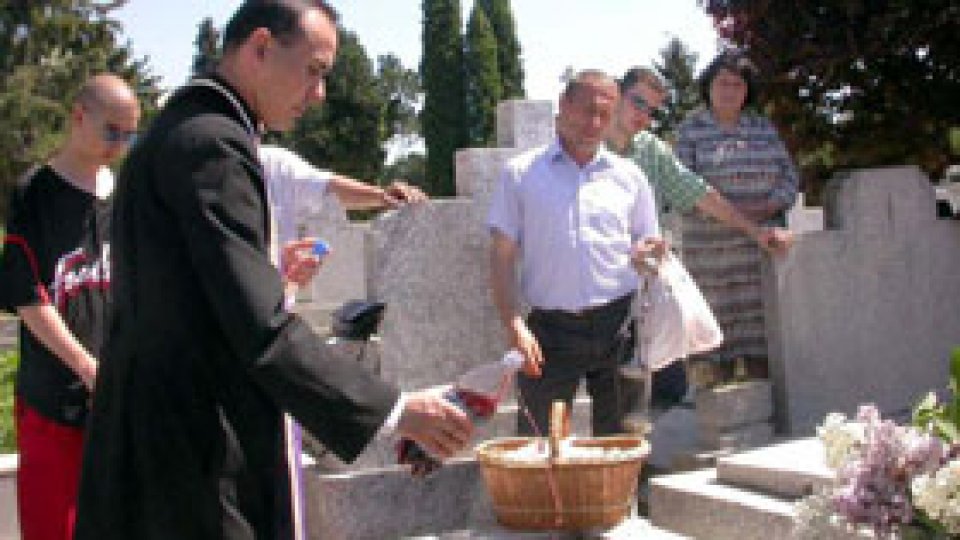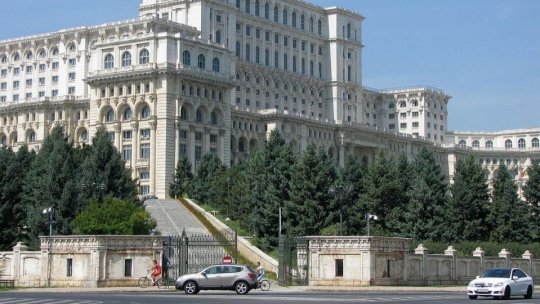Bright Week has started for Christians
The Bright Week is the first week that follows after the Resurrection and ends with the following Sunday, the Sunday of St. Thomas, and it is celebrated by Orthodox Christians and Greek-Catholics.

Articol de Sorin Solomon, 18 Aprilie 2012, 08:09
The Christians and Greek-Catholics celebrate the Bright Week.
The Bright Week is the first week that follows after the Resurrection and ends with the following Sunday, Thomas’ Sunday, according to an Agerpres documentary.
For Orthodox Christians, the Bright Week is the beginning of a holiday period which ends after 50 days since the Resurrection, at the Pentecost (Whitsuntide). Bright Week is situated under the sign of light and the first service starts with “Come and take light”.
Christ comes out of the grave bathed in the Holy Light of His Divinity.
Since the Resurrection and until the Pentecost, the Christians sing within the church “Shine, shine up the new Jerusalem, the glory of the Lord has risen upon you”, the New Jerusalem is an allusion to the eternal Jerusalem, eschatological.
The services of Bright Week are held with the Royal Doors fully open.
So, the view to the altar is not anymore blocked by anything, which symbolizes the open door from the Savior’s tomb , but also the torn veil from the temple in Jerusalem when Christ died.
In the first centuries of the Christianity, during the Bright Week, the catechumens (those who were prepared to be baptized) who were baptized in the Resurrection night were dressed in white, symbol of the Resurrection joy.
In this period, the church services are different than those from the rest of the year.
The singing is an allusion to Christ’s Resurrection
All the singing and the biblical texts within this period are direct allusions to Christ’s Resurrection.
The services are more beautiful through this joy of Resurrection of which are “flooded” all the liturgical ordinances.
Even the funeral service of those who died during this week is different than the regular ordinance, because the singing is the same with the Resurrection canon instead of “Eternal Memorial”.
Since the Resurrection Sunday, within the Orthodox Church starts a new liturgical period of the ecclesiastic year, also named the Pentecost period.
The name of this period –one of the three major divisions of the liturgical year (apart from the Octoechos and Triodon) –comes from the Pentecost book which is used within the orthodox religion during Easter and Whitsuntide (50 days).
This period is different from the spiritual point of view by lightness, beauty and joy of the entire creation, which is expressed through ordinances very specific that are held within the Church.
Everything seems bathed in white, everything is light and expresses the joy of being one with Christ and His Church.
Even the churches and the priests’ robes are vest in white.
That is why this period of Pentecost is the period when “Christ is risen” is sung in any circumstances and joy singing: “Come and lighten everyone! Come and be joyful for the Christ’s Resurrection!”
All this time, Christians should greet with “Christ is Risen” and at the Ascension with “Christ is Ascended!” followed by the answer “He is Risen indeed!” and “He He is Ascended indeed!”.
Girls’ wetting, in Ardeal
The second and the third day of Easter are, in our country, full of laic significance and Romanian’ customs are different from one area to another.
The specialists attribute to these traditions connotations which belong to rest before beginning of agricultural works.
A custom that Romanians, Hungarians and Saxons from Transylvania and Banat practice in the second day of Easter is the girl’s wetting.
According to ethnologist Mircea Taban, from Banatul Montan Museum from Reșița, the boys are dropping perfume on girls –sometimes even with unused water- as a symbol of fertility.
„I believe that it comes to us through German chains. I don’t believe that has its origin into a far past, it is a mythical ritual of fertility this perfume spraying.
“Unfortunately, nowadays, I don’t think young people is practicing it anymore, in the last instance. Perhaps in far times it signified also a promise of family foundation”, has declared for Radio România Actualităţi the ethnologist Mircea Taban.
Not all the girls accepted to be sprayed with perfume by all boys, but probably by some of them or by their favorite.
Translated by Alexandra-Diana Mircea
MTTLC, Bucharest University













